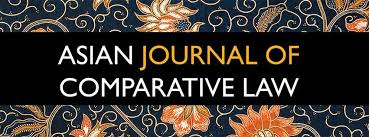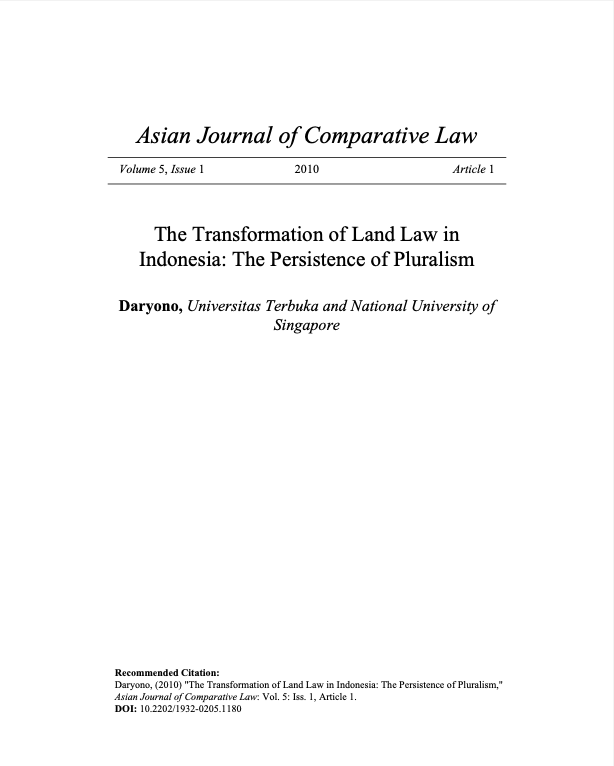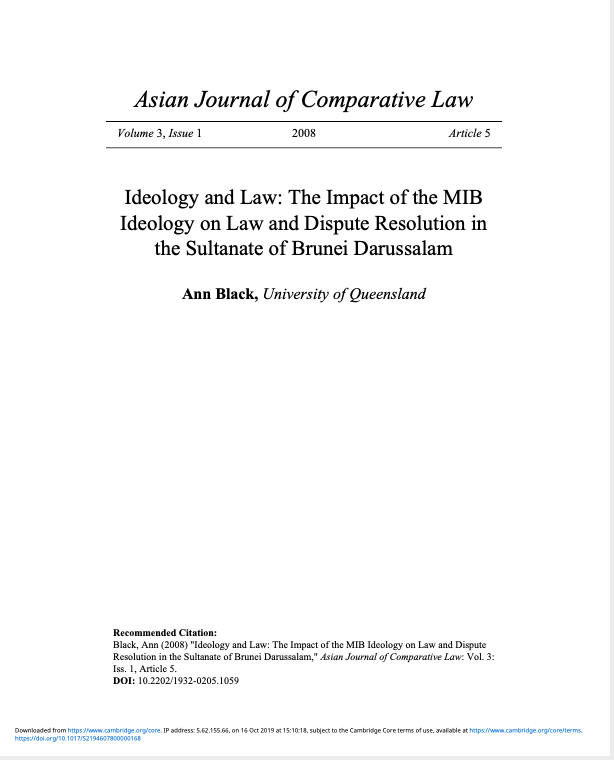Focal point
Location
The Asian Journal of Comparative Law (AsJCL) is the leading forum for research and discussion of the law and legal systems of Asia. It embraces work that is theoretical, empirical, socio-legal, doctrinal or comparative that relates to one or more Asian legal systems, as well as work that compares one or more Asian legal systems with non-Asian systems. The Journal seeks articles which display an intimate knowledge of Asian legal systems, and thus provide a window into the way they work in practice. The AsJCL is an initiative of the Asian Law Institute (ASLI), an association established by thirteen leading law schools in Asia and with a rapidly expanding membership base across Asia and in other regions around the world.
Members:
Resources
Displaying 1 - 2 of 2The Transformation of Land Law in Indonesia: The Persistence of Pluralism
Transforming a pluralistic tenure system into unified statutory rights has been a major objective of the development of property law in many developing countries. Many law and development scholars have assumed that unified land rights are a pre-condition to development and that a pluralistic tenure land system is a major source of uncertainty and insecurity. This article challenges this commonly held assumption by way of a case study of Indonesia's effort to unify the laws governing land.
Ideology and Law: The Impact of the MIB Ideology on Law and Dispute Resolution in the Sultanate of Brunei Darussalam
Since 1984, the Sultanate of Brunei Darussalam has chartered its post-independence course through its proclaimed ideological compass of MIB (Melayu, Islam, Beraja). All three pillars of MIB – Malay culture, the religion of Islam, and the institution of an absolute Monarchy - are traditional, long standing Bruneian features, which have been expertly crafted in the last two decades to act as the filter by which modernisation and development can occur.



